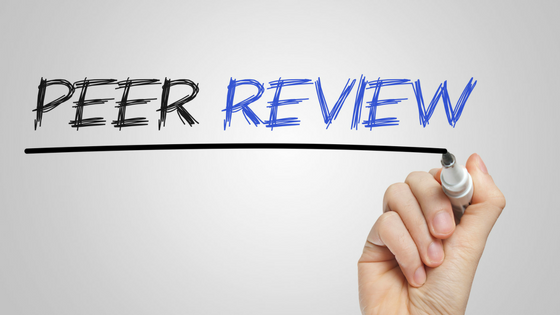
The purpose of a peer review is to promote quality in the accounting and auditing services provided by CPA firms. Peer reviews ensure that CPA firms are preforming at a high standard and offer firms opportunities to improve the quality of their services and processes.
What are peer reviews?
Members of the American Institute of Certified Public Accountants (AICPA) approved a proposal that requires AICPA members to participate in a practice-monitoring program in 1988, which led to today’s peer review program.
According to the AICPA PR Summary, “peer review helps to monitor a CPA firm’s accounting and auditing practice (practice monitoring). The goal of the practice monitoring, and the program itself, is to promote quality in the accounting and auditing services provided by the AICPA members and their CPA firms. This goal serves the public interest and enhances the significance of AICPA membership.”
There are two types of peer reviews, System Reviews and Engagement Reviews. System Reviews focus on a firm’s system of quality control and Engagement Reviews focus on work performed on particular selected engagements.
Why do we do them?
As a member of the American Institute of Certified Public Accountants (AICPA), firms are required to have an outside peer review of quality control procedures every three years.
Who conducts peer reviews?
Licensed CPAs who meet specific requirements and have completed the proper training can become a peer reviewer.
Requirements include:
- Be a member of the AICPA in good standing, licensed to practice as a CPA.
- Be currently active in public practice at a supervisory level in the accounting or auditing function of a firm enrolled in the program, as a partner of the firm, or as a manager or person with equivalent supervisory responsibilities.
- Be associated with a firm that has received a report with the peer review rating of pass for its most recent System or Engagement Review that was accepted timely, ordinarily within the last three years and six months.
- Possess current knowledge of professional standards applicable to the kind of practice to be reviewed, including quality control and peer review standards.
- Have at least five years of recent experience in the practice of public accounting in the accounting or auditing function.
- Have provided the administering entity with information that accurately reflects the qualification of the reviewer including recent industry experience, which is updated on a timely basis.
- Obtain at least 40% of the AICPA required CPE in subjects relating to accounting, auditing, and quality control. Peer reviewers should obtain at least 8 hours in any 1 year and 48 hours every 3 years.
What are the benefits of peer reviews?
There are many benefits of peer reviews for both clients of CPA firms and the reviewed CPA firms, including:
- Ensure high quality services are provided to clients
- Review and optimize internal processes
- Provides firms with insights and recommendations for efficiency improvements
The Corrigan Krause team is pleased to announce the successful completion of an independent peer review of our accounting and auditing practice. Corrigan Krause received a pass rating, the highest rating available. Firms can receive a rating of pass, pass with deficiency (ies) or fail. Thanks to Warady & Davis LLP for conducting our peer review and providing us with valuable insights. We are formally evaluated every three years but internally we review our quality controls every year. Peer reviews allow us to continue to improve upon our client services and serve you better.
